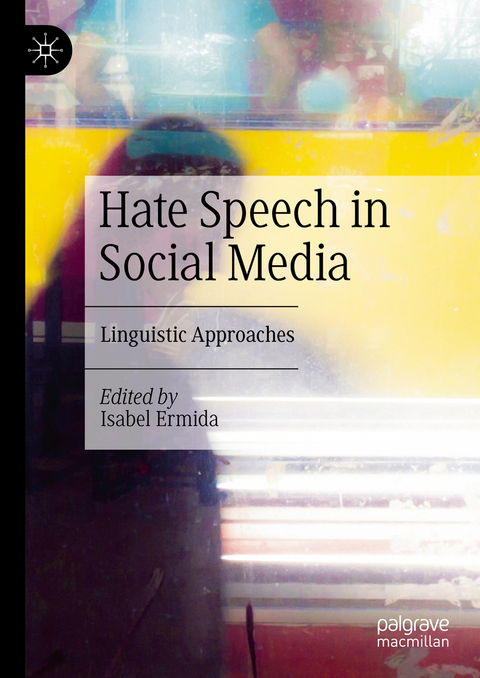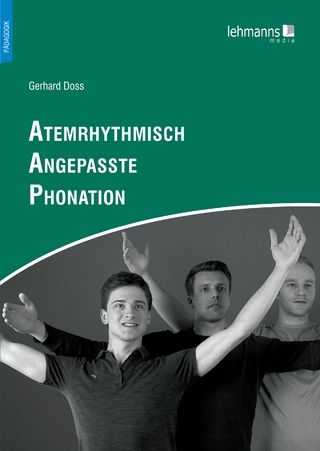
Hate Speech in Social Media
Springer International Publishing (Verlag)
978-3-031-38247-5 (ISBN)
This edited book offers insight into the linguistic construction of prejudice and discrimination in social media. Drawing on the outputs of a three-year research project, NETLANG, involving scholars from five European countries (Portugal, Czech Republic, Estonia, Finland and Poland), as well as on external contributions from participants in the project's final conference, the collection brings together a variety of linguistic approaches to the study of online hate speech, ranging from pragmatic to syntactic, morphological, and lexical analyses, with a considerable focus on Natural Language Processing and Corpus Linguistics. Data from English, Portuguese, Danish, Lithuanian, Persian, Polish, and Slovenian are examined, along with various geopolitical contexts for hate speech, especially anti-refugee and anti-immigrant discourse. The authors explore a continuum of overt to covert textual data, namely: (i) structural elements, such as syntactic and morphological patterns which recur throughout the texts; (ii) lexical and stylistic elements, revealing the often implicit ways in which vocabulary choices and rhetorical devices signal the expression of hate; and (iii) interactional elements, concerning the pragmatic relationships established in online communicative exchanges. The chapters cover numerous types of prejudice, such as sexism, racism, nationalism, antisemitism, religious intolerance, ageism, and homo/transphobia. The book will be of interest to an academic readership in Linguistics, Media Studies, Communication Studies, and Social Sciences.
lt;b>Isabel Ermida is Professor of Linguistics at the Department of English Studies, University of Minho, Portugal. She has dedicated her research to the pragmatic analysis of forms of indirectness and implicitness in language, with a key interest in humour, on which she has published extensively (The Language of Comic Narratives, 2008; Language and Humour in the Media, co-edited, 2012). Her latest work explores the language of hate speech, focusing on the expression of power and the ideological construction of identity and belonging. Drawing on impoliteness studies and speech act scholarship, she has analysed the prejudiced and discriminatory representation of social variables such as gender, nationality, ethnicity, age, and social class in public discourse. Her latest international financed project (NETLANG) delves into the language of hate speech on social media.
INTRODUCTION: ONLINE HATE SPEECH - OBJECT, APPROACHES, ISSUESChapter 1. Building and Analysing a Hate Speech Corpus: The NETLANG Experience and Beyond - Isabel ErmidaChapter 2. Distinguishing Hate Speech from Aggressive Speech: A Five-Factor Annotation Model - Isabel Ermida PART I. STRUCTURAL PATTERNS IN HATE SPEECHChapter 3. Improving NLP Techniques by Integrating Linguistic Input to Detect Hate Speech in CMC Corpora - Idalete Dias and Filipa Pereira Chapter 4. First-person Aggression Verbs in YouTube Comments - Ylva Biri, Laura Hekanaho, and Minna Palander-CollinChapter 5. Emotional Deixis in Online Hate Speech - Joana Aguiar and Pilar BarbosaChapter 6. Derogatory Linguistic Mechanisms in Online Hate Speech - Eckhard BickPART II. LEXICAL AND RHETORICAL STRATEGIES IN THE EXPRESSION OF HATE SPEECHChapter 7. Humorous Use of Figurative Language in Religious Hate Speech - Liisi Laineste and Wladyslaw ChlopickiChapter 8. Rhetorical Questions as Conveyors of Hate Speech - Vahid Parvaresh and Gemma HarveyChapter 9. Enabling Concepts in Hate Speech: The Function of the Apartheid Analogy in Antisemitic Online Discourse about Israel - Matthew Bolton, Matthias J. Becker, Laura Ascone, and Karolina PlaczyntaChapter 10. Hate Speech in Poland in the Context of the War in Ukraine - Lucyna Harmon PART III. THE INTERACTIONAL DIMENSION OF HATE SPEECH: NEGOTIATING, STANCE-TAKING, COUNTERINGChapter 11. Stance-taking and Gender: Hateful Representations of Portuguese Women Public Figures in the NETLANG Corpus - Rita Faria Chapter 12. Negotiating Hate and Conflict in Online Comments: Evidence from the NETLANG Corpus - Jan Chovanec Chapter 13. Linguistic Markers of Affect and the Gender Dimension in Online Hate Speech - Kristina Pahor de Maiti, Jasmin Franza, and Darja Fiser Chapter 14. Counteracting Homophobic Discourse in Internet Comments: Fuelling or Mediating Conflict? - Jurat Ruzait
| Erscheinungsdatum | 14.12.2023 |
|---|---|
| Zusatzinfo | XX, 443 p. 54 illus., 31 illus. in color. |
| Verlagsort | Cham |
| Sprache | englisch |
| Maße | 148 x 210 mm |
| Gewicht | 729 g |
| Themenwelt | Geisteswissenschaften ► Sprach- / Literaturwissenschaft ► Sprachwissenschaft |
| Schlagworte | Aggression • CMC (Computer-Mediated Communication) • CMC (Computer-Mediated Communication) • Corpus Linguistics • marginalization • NETLANG • NLP (Natural Language Processing) • Prejudice • Public discourse • SID (Socially Inappropriate Discourse) |
| ISBN-10 | 3-031-38247-1 / 3031382471 |
| ISBN-13 | 978-3-031-38247-5 / 9783031382475 |
| Zustand | Neuware |
| Haben Sie eine Frage zum Produkt? |
aus dem Bereich


